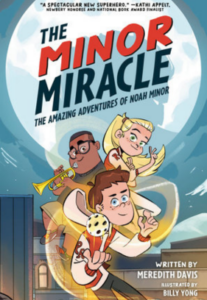Both of Little Tree’s parents have died by the time he is 5 years old. His Cherokee grandmother and half-Cherokee grandfather take him back to their home in the Appalachian mountains of Tennessee. During the Great Depression, and with love and humor, his grandparents teach him The Way of the Cherokee.
Granma reads Shakespeare to Little Tree and Granpa. Granpa often grows agitated by the characters’ behaviors. Little Tree follows Granpa around during the days and learns about nature and animals. Granma tells him about his spiritual mind in contrast to his physical mind, and how he needs to feed his spirit to achieve a better life next time around. Little Tree and his grandparents encounter a number of white people who distrust or outright mock them. Little Tree often misses the searing remarks that his grandparents largely ignore.
His grandparents share tragic stories about their ancestors and the Trail of Tears. Granpa frequently shares his suspicious and convoluted views about politicians while teaching Little Tree the workings of his whiskey business. Granpa has to be secretive about his illegal job.
Once, two racist swindlers visit his grandparents’ property, hoping to partner with him in the business. When Granma and Granpa hear the men’s unsavory remarks about Little Tree, they allow the men to be covered in poison ivy and bug bites, and then get trapped in the woods overnight.
Granpa takes a rattlesnake bite meant for Little Tree. The boy runs to get Granma, who cuts Granpa, sucks out blood and covers him with her own clothes during a lengthy vigil in the woods. After Granpa’s delirium subsides, he tells a story about an experience during the Civil War. He had watched as Union soldiers regularly brought food to a poor family and kept their farm afloat by working their land. Granpa also brought the family supplies on occasion. Regulators ultimately shot the poor farmer and the Union soldier, as well as labeling the soldier a deserter and coward.
A man who touts his honesty by saying he’s a Christian sells Little Tree a dying calf. After the calf dies, Little Tree has a growing distrust for Christians. He and his grandparents, along with his grandparents’ old Cherokee friend, Willow John, attend the local church. Since the area is too small for a variety of churches, people from many denominations meet together. This causes frequent arguing about doctrine and leads to a lot of confusion for Granpa and Little Tree about the Bible. They witness the infighting and the fire-and-brimstone preaching and eventually decide they will simply remain spectators where religion is concerned.
Little Tree meets and grows to love his grandparents’ friends. Pine Billy is an emotional, fiddle-playing traveler who pops in on occasion. Mr. Wine, a clock repair man, also visits. Little Tree’s grandparents demonstrate their love for each other and for him in numerous and subtle ways. His grandparents’ friends, too, feel a strong affection for Little Tree. One store owner regularly gives the boy candy. When Little Tree feels bad about taking something for which he hasn’t paid, the shopkeeper assures him the boy is helping him get rid of candy that is too old to sell.
Mr. Wine pretends to forget he has presents for Little Tree in his pockets on each visit. He brings gifts such as clothing for Little Tree. He says they didn’t fit his far-away nephew, and he needs someone to take them off his hands. He also teaches Little Tree math and life lessons about money. Willow John and Little Tree privately exchange gifts by leaving things for the other. Once, Little Tree causes a commotion by leaving a frog in Willow John’s pocket during church.
Little Tree and his grandparents are distraught when politicians serve papers saying his grandparents are unfit guardians. As Granpa tries to fight to keep the boy, he seeks out Mr. Wine for help. He learns Mr. Wine has died. A lawyer in town refuses to take the case, knowing no judge will rule in favor of an Indian. Little Tree is bussed to an orphanage hours away. There, he’s criticized and mistreated by the reverend in charge. The reverend often says he regrets having taken in such a heathen. Little Tree sends spirit messages to his grandparents and Willow John. After months have passed, Granpa arrives to bring him home. They later learn that Willow John went to the school and so intimidated the reverend that he released Little Tree.
Within the next few years, Willow John, the grandparents and even all of the trusty farm dogs pass away. Little Tree’s loved ones leave him with the assurance that they will see him soon and that the next life will be better.











